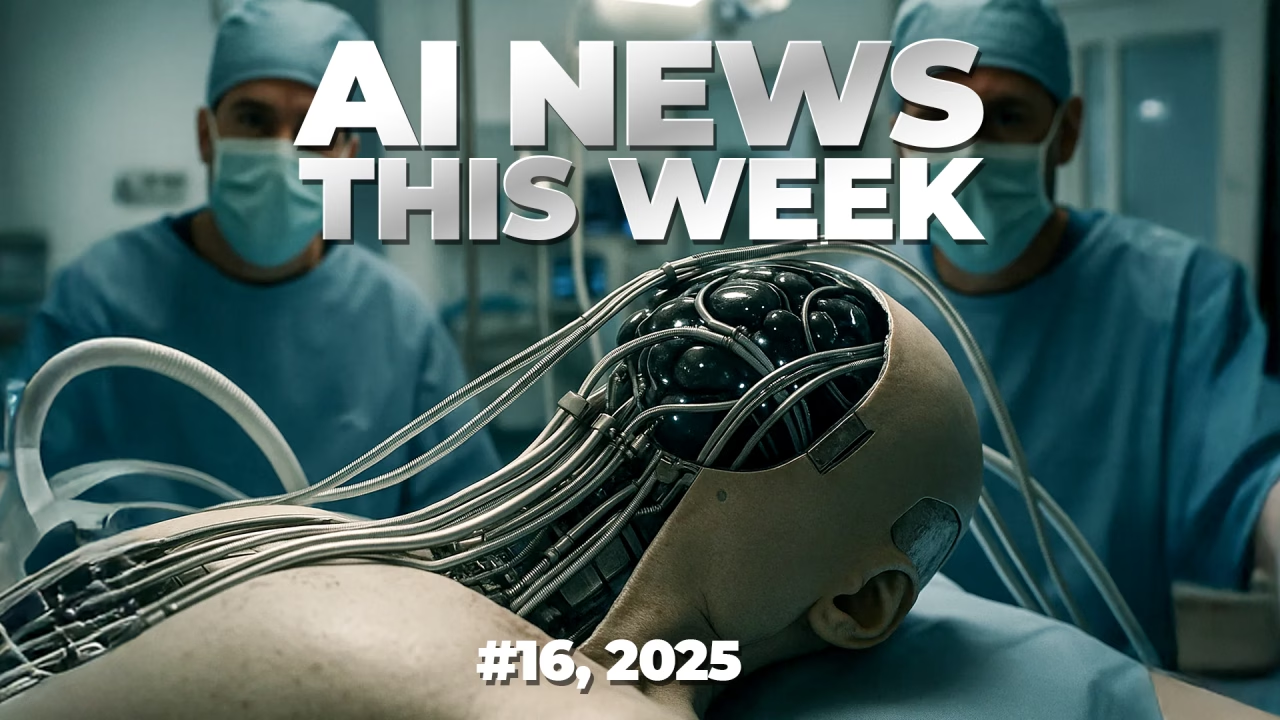Get ready for a deep dive into the intriguing world of artificial intelligence. This week, we saw a whirlwind of AI launches and announcements—especially from OpenAI. While there was a lot of buzz around new tools, a few stories stood out by offering fresh insights and sparking new ideas about the future of AI. These stories may not have made the loudest headlines, but they are the ones that truly made me pause and think.
1. Brain Surgery for AI: Unpacking Bias and Censorship
One fascinating development in AI this week revolved around a new method dubbed “feature-level interventions.” This approach allows developers to identify and adjust the internal functions of AI models that trigger censorship and biased responses. The process is akin to opening up an android’s mind and fine-tuning its inner workings to allow it to communicate more freely.
Why is this significant? Most AI tools come with built-in filters that can limit their functionality. By pinpointing and adjusting these filters, organizations can customize AI models to better align with their needs. Imagine a customer support AI that could adapt its communication style based on the cultural norms of different countries. The potential applications for this technology span HR, finance, legal research, and beyond. It’s like giving your AI assistant the ability to adjust its level of openness on demand—powerful yet somewhat daunting.
The inspiration for this idea came from articles in VentureBeat and a study by researchers Cyril Gorlla and Trevor Tuttle. Their work highlights the potential for AI to move beyond its current limitations, offering businesses more control over their AI interactions.
2. The Era of Experience: AI’s Next Evolutionary Step
A groundbreaking paper by Google DeepMind introduced the concept of letting AI learn from its own experiences, rather than merely from human input. This approach mimics the natural learning processes found in animals, using actions and rewards to drive learning.
This shift is poised to revolutionize how AI systems engage with their environments. Instead of interactions being confined to discrete sessions, AI agents could continuously learn and adapt, developing a memory that spans their lifetime. This continuous learning could transform AI from a mere tool into a peer with whom we can collaborate.
Imagine deploying multiple AI agents to tackle complex problems, like improving marketing strategies or product designs. These agents could autonomously test and refine solutions, providing insights we might never have discovered on our own. It’s an exciting glimpse into a future where AI contributes significantly to innovation.
The concept was discussed in depth in a paper by David Silver and Richard S. Sutton, which suggests that tapping into AI’s capacity for experiential learning could unlock unprecedented potential.
3. OpenAI’s Strategic Shift: Infrastructure over Models
This week, amidst the chatter about new tools and visually engaging features, a quieter yet monumental shift emerged. OpenAI is transforming its infrastructure to facilitate the development of AI agents that can perform complex tasks independently.
These agents aren’t limited to answering questions. They have the capability to call APIs, use functions, perform actions, store information, and trigger external tools. This development could change the very nature of our interaction with AI systems.
Consider waking up to find your AI assistant has already reorganized your schedule, paused underperforming campaigns, and flagged important documents for review. Such proactive support not only saves time but also adds value by anticipating your needs.
This evolution of AI infrastructure was highlighted by ZDNet and underscores a strategic pivot by OpenAI towards more autonomous systems. It positions AI as not just a reactive tool, but an active participant in decision-making processes.
4. The Rise of Safe Superintelligence: A New Frontier
Perhaps one of the most remarkable stories this week was the rapid rise of Safe Superintelligence Inc., founded by OpenAI co-founder Ilya Sutskever. Despite having no products on the market, the company’s valuation has soared to an astounding $32 billion, underscoring the intense interest and investment in AI development.
This surge raises the question: Could we soon see AI startups valued at $100 billion? The high valuation of Safe Superintelligence signifies a growing race to develop Artificial General Intelligence (AGI) that is both advanced and safe.
The company’s trajectory suggests an emerging landscape where talent and mission are as valuable as the technology itself. As more startups enter this arena, we can expect even more astronomical valuations and a heightened push towards responsible AI development.
Inspiration for this story came from coverage in TechCrunch and Reuters. It highlights the burgeoning demand for safe AI solutions and the potential for startups to capture substantial market interest and investment.
Final Musings: Practical AI Applications and Innovations
Reflecting on these stories, several innovative applications come to mind:
- Internal IT AI Surgeon: An AI model that updates its functioning based on real-time feedback from your team.
- Stream AI for Customer Behavior: An agent that continuously observes customer journeys in your CRM, tracking users across entire scenarios instead of isolated sessions.
- Autonomous Error Recovery Bot: An AI model that can self-diagnose and correct mistakes automatically, ensuring seamless user experiences.
Conclusion: Embracing the AI Frontier
This week’s AI developments offer a glimpse into a future where AI is not just an assistant but a proactive partner in innovation. Whether it’s reshaping how we approach problem-solving, enhancing user interaction, or redefining business processes, the possibilities are boundless.
As AI technology continues to mature, it is crucial to remain informed and engaged with these advancements. They are shaping not just the way we use AI, but the very framework of how AI will integrate into our lives and industries.
Stay tuned to uncover more stories that delve deep into the implications of AI and how we can harness its potential responsibly and effectively. Your thoughts and insights are always welcome—let’s continue this exciting journey together.
